This Semrush review is based on our personal experience with the service and using it for more than nine months. Learn more about Semrush and sign up for a free seven-day trial here.
Like millions of other websites that have been around for a long period of time, here at Location Rebel we had a lot of deferred maintenance.
Things have generally been going well, but aside from filling out some basic metadata on our posts, for years we largely ignored our SEO, and we certainly haven’t been proactive about doing much with it.
At the end of last year, I started to realize how much of a problem this was. Traffic was starting to slide down, we had hundreds (literally) of posts that either weren’t optimized, were no longer useful, or in many cases, both.
It became really clear that I’d need to take some time to rethink the long-term goals of the site and devote a significant amount of time to getting back to ground zero with our site structure, technical components, and optimization.
In order to help facilitate that I enlisted the help of Steve Latronica to do an in-depth technical audit of the site. Over the last few years we’d switched domains, moved off WordPress, moved back on to WordPress, and I knew there was going to be a lot of scar tissue from the process that needed to be addressed.
We spent the better part of 4 months going through the process, but throughout the whole ordeal, there was one service Steve insisted that we pick up: Semrush.
He had us set up in his account, but after he finished the audit, we were on our own. We learned very quickly that Semrush was going to be a lifesaver when it came to helping us figure out our strategic direction, identify opportunities, and track every single element of our website’s search performance.
I’ve now been a Semrush customer for about 9 months, and I honestly believe this is an absolutely invaluable and essential tool for any established blogger, online marketer, or SEO freelancer.
In this Semrush review, we’ll go into detail about what Semrush is, what features it has, who it’s right for, and a few things we’ve done to get the most out of it.
Table of Contents
What is Semrush?
So after mentioning above how critical Semrush is to my business, you’re probably wondering what exactly it is.
Glad you asked.
Semrush is an all-in-one digital marketing suite of tools, that will help you research and track many of the most important elements of your online business like SEO, paid advertising, and social media.
It will be different things to different people, but we’ve used it primarily as our one-stop source for everything we do with SEO.
They structure it with by having 5 different toolkits:
- SEO Toolkit: Tools that specifically help you with keyword research, competitive analysis, on page optimization, and link-building opportunities.
- Advertising Toolkit: Tools specifically focused on paid advertising and helping you find keywords that will get you results and traffic (without breaking the bank)
- Social Media Toolkit: This is unique to it’s competitors, but it helps you schedule, plan, and track all of your social media efforts. Because, let’s face it, these days SEO and online marketing is a pretty cohesive thing.
- Content Marketing Toolkit: These tools help you ensure that not only are you creating the right content, but that you’re doing everything you can to optimize it and give it the best shot at ranking
- Competitive Research Toolkit: Everything you need to reverse engineer what your competitors are doing including backlink analysis, domain overviews, traffic analysis, and organic research
The primary toolkit we use here at Location Rebel is the SEO Toolkit.
Here’s a little bit more of a break down of some of the things it will help you do, as this is most likely what your primary focus is.
- Keyword Research: Semrush allows us to easily identify keywords that we think we have a chance for ranking for, that will actually have an impact on our business. More on that later
- Competitive Analysis: We can see exactly what our competitors are ranking for, the metrics of their site/page that will allow us to figure out if we’ll be able to our rank them.
- On-Site Analysis: This is huge. Semrush will analyze every page, and tell us everything that’s wrong with it from a technical/optimization standpoint, and show you exactly how to fix it. Not only that, it will make other best practice suggestions for easy wins to improve your page in the eyes of Google
- Position Tracking: When you’re doing an SEO campaign you need to have a way to actually track and see how things are performing. Semrush features really in-depth position tracking that allows us to not only see where we rank and whether that’s better or worse than last time we checked, but it also allows you to see if listings have ads, featured snippets, video or image results etc.
- Opportunities: I think this is one of my favorite things about Semrush. It will helpful identify opportunities specifically related to any page on your site. It will recommend keywords that might work well. It will also give you ideas for link building and suggest sites you could benefit from getting a link from in your industry.
The list goes on, and we’ll cover these more in depth later in the post.
But having one place we can rely on for all of these features is a total game changer, and it’s helped us go from a steady decline in traffic over the years from our deferred maintenance to righting the ship and seeing things swing back the other direction.
I've used Semrush for over 6 years now. When it comes to researching competitors, tracking my site health, and monitoring search rankings - its one of the most indispensable tools I own.
Semrush Competitors: Semrush vs Moz Pro Vs. Ahrefs
Here’s the deal, SEO used to be easy. Back when I did freelance SEO, you could largely get by with free tools and a cursory knowledge of how search engines worked – and you could get things ranked.
These days?
Google is smarter. Site owners are smarter. And there’s more competition than ever.
So if you’re serious about building a site or doing SEO work for clients, it’s absolutely essential to have a premium, robust SEO tool like Semrush.
In my mind, there are three major companies that offer these all in one services at a price that isn’t totally astronomical.
They are:
I have experience with all three of these and think they’re all good services.
Part of the reason we’ve settled with Semrush over the long term is because that’s what Steve was using when he helped us with our site migration.
But, I’ve made the decision to stay with it, because I truly think it’s the best tool for what we want to do.
I used Moz Pro for about 4 months previously, and I’ll say, it’s probably the most user-friendly of the bunch. It gives you clear charts, with fun colors, and is the most accessible for someone new to the world of SEO.
Moz Pro is almost entirely an SEO tool, however, and the Semrush feature set is quite a bit more robust when you factor in some of their social and content optimization tools (which we’ll talk more about later).
Compared to Moz Pro, while there’s a little bit more of a learning curve to Semrush, I found the data to be more in depth, they had better recommendations for how to improve our pages, and the features felt more built out to me.
Ahrefs really specializes in backlinks and competitive analysis. If that’s the primary thing you’re focused on and you plan to use the service 80% of the time to dig into backlink profiles and competitor data, then I’d go that route.
So while all three are good services for what they do, in my experience Semrush has the right combination of the others to make it much more feature-packed, and the better fit for most online marketers, bloggers, or e-commerce owners.
Who Should Buy Semrush?
The reality is that Semrush is not a tool for total beginners. Semrush is for people who are serious about optimizing and growing their website and are willing to put in the work to do it.
If all you care about is tracking a handful of your rankings, then use a tool like Mangools’ SERP Watcher.
If you just want Keyword Research, you can use Wordtracker for free to get some basic level insights.
If you just want some basic competitive analysis then test out the free trial of SpyFu.
Those will all work ok if you’re just starting.
But if you have a site, are starting to see a little search traffic and you want to grow it significantly, them Semrush is the tool for you.
Having all of your data in one place is super valuable, and more importantly, the data you’re going to get from Semrush will be way more robust and accurate than what you’ll find from free tools.
It also syncs up with your Google Analytics and Google Webmaster tools accounts to ensure you’re getting the most accurate data possible.
On top of just being a tool for blog or website owners, Semrush is perfect for someone who is running or thinking about starting a freelance SEO business or small agency.
Bottom line, all of your competitors will be using a similar tool, so if you’re going this route, you have no choice but to invest in a premium tool like this.
Join over 40,000 people who have taken our 6 part freelance writing course. Sign up below and let’s do this together.
By entering your email address you agree to receive emails from Location Rebel. We'll respect your privacy and you can unsubscribe at any time.
My 5 Favorite Semrush Features
We included a huge list of features above, so it’s obvious you can do a lot with Semrush.
But I wanted to drill down on a few of my favorite features, and the things we use here at Location Rebel most often.
Domain Overview
The domain overview feature in SEMrush is a great way to get a birds-eye view of any competitors you have. At a glance, you can easily see a ton of information.
A few of the key things I look at on the Domain Overview page are:
- Top organic keywords
- Traffic trends
- Main organic competitors
- Backlinks
- Referring Domains
This allows me to not only get a good sense of how well I’ll be able to compete with a particular site for a given keyword, but it also gives me link building ideas and places I can go to try and build a relationship in order to get a backlink or forge a mutually beneficial partnership.
Site Audit
This is one of the very first things I do with any new site, and I tend to run it once every two weeks with sites that I’m actively working in.
Here’s the deal, no matter how good your site is and how well executed the SEO is from a technical standpoint, the site audit tool will find errors, warnings, and things that might make you sweat.
But that’s ok, it’s just being thorough! As you spend more time with it you begin to learn what is mission critical and what is ok to put off fixing. Semrush also does a really good job of explaining what all of the different elements of the audit are, so you feel confident in your ability to go and fix them.
A few things the audit looks at:
- Are there broken links on your site?
- Are pages resolving properly?
- Are any pages returning 404 errors?
- Are there duplicate or missing title tags or missing metadata?
- Content issues like missing H1 tags, low word count etc.
The list goes on. But this gives you an incredibly detailed starting point to optimize both individual pages and the site as a whole.
On-Page SEO Checker
This is similar to the Site Audit, but it focuses more heavily on individual pages and how you can optimize them to have the best chance of them ranking well.
For any individual page, it will do an in-depth content analysis of word counts, keywords, structure and more. It will then allow you to compare that against other rivals ranking in the top 10 for your desired keywords so that you can make edits as necessary.
It will also give you specific strategy ideas for how you can win featured snippets, get enhances rankings and a ton more.
You can spend hours geeking out about this stuff, and if you have a specific page you’re really trying to rank, this is so valuable.
Position Tracker
Most important part of SEO? Tracking.
If you aren’t sure what’s working and what’s not, then there’s no way you can continue to test and improve.
Semrush’s position tracker is phenomenal. It shows you where you rank for all your most important keywords, how far up or down it’s done from its previous position, and it also shows you all of the enhanced search rankings for each term. So it will tell you if the result has a review, featured snippet, video etc. and it will also tell you if you have any of those spots.
Semrush Keyword Magic Tool
This is a tool I’ve had a lot of success with when it comes to finding initial keywords to target.
Semrush is great because it hooks up with Google Webmaster and Google Analytics to take actual data from your site, and show you what you’re already ranking for.
But with the Keyword Magic Tool, you can input a keyword you’re interested in, and it will give you thousands of related keywords and show you the traffic and relative difficulty for ranking.
This was super beneficial for my new HDR site, as it allowed me to dig in and get definitive data that shows terms around HDR TVs and video get more traffic, but are harder to rank for than HDR photography related posts.
There are literally dozens of other cool features in Semrush that will help you optimize and grow your business, and each time I dig in I’m discovering more.
Head over to Semrush and check it out with their free trial. That will definitely give you a better idea of whether or not it’s right for you.
Here’s a Walk-Through of My Keyword Research Process
Sometimes it helps to see things in action. Here’s me doing a real-time walkthrough of how I found new keywords for my golf niche site using the tools within Semrush:
A Couple Things I Don’t Like About Semrush
For all of the things I love about this tool, it definitely isn’t perfect (none of them are).
So this wouldn’t be a proper Semrush review if I didn’t discuss a couple things, in particular, that jump out as sticking points for me.
Difficult User Interface (at First)
There is a lot going on in Semrush. When you have as many features and try to solve as many issues as they do, figuring out how to create an easy to navigate user interface can be difficult.
The result, in this case, is it’s taken me hours to get to the point where I feel comfortable finding the information and tools I need when I need them.
Moz Pro has a leg up in this regard. I found it easier to get around, and I thought their graphs and data were better designed and more beginner friendly.
That said, as I get to know the software better, I’m becoming more confident in my ability to get around, and it isn’t quite as much of a frustration as it was early on.
Estimated Data
While Semrush integrates with Google Analytics and Google Webmaster tools to get you as much actual data as possible, one of the pitfalls of any of these services is that they rely a lot on estimated data.
In reports where it shows increase/decreases in traffic or visibility, you learn to take it with a grain of salt. Because on any given day it might show me my traffic is up by 12% – when that is indeed not the case.
It’s great to be able to see numbers and facts, but just keep in mind that you shouldn’t always take them completely at face value.
Some Frequently Asked Questions About Semrush, Answered
How Much Does Semrush Cost?
The basic plan for Semrush costs $119.95/month, and for most people investing in their first SEM tool this is should be plenty.
If you’ve got an agency or are planning to do more client work, then picking up the “Guru” plan at $229.95/month is probably worth it. It allows you to run more data, track more key terms, and create branded reports.
Is the Moz or Semrush Keyword Tool More Accurate?
In my experience, they’re about the same. You generally get similar numbers, which also closely match what you’ll find in the Google Keyword Research tool – so regardless of which service you choose, you’ll be ok from there.
Is Semrush the best SEO Tool?
It depends on what you’re looking for.
As I mentioned above, I think Moz Pro is the most beginner-friendly.
Ahrefs is the best for backlink and competitor research.
Semrush is the best and most robust all-in-one digital marketing and SEO tool, and it’s the reason why I’ve personally used it for over 5 years.
Is Semrush Worth it?
Semrush is 100% worth the price. It’s not cheap with their basic plan coming in at $99/month, but if you have a monetized site, and you actually use the service I have no doubt you’d be able to make far more than $1200 from it after using it for a year.
How to Start With Semrush: 6 Things I’d Do First
Ok, so you’re ready to give this a shot? Make sure you’ve signed up for a trial of the service here. Once you’ve had a few minutes to poke around, get a little overwhelmed, and ask yourself “now what?” then this section is for you!
This is how I’d approach getting started with Semrush and start digging into the features they have to offer.
1) Create a Project for Your Site
First thing’s first, you’ll want to create a new project for your site. This will allow you to easily track all of the different aspects of your site, marketing, and SEO and quickly refer back when you’re checking up on your stats and doing your research.
This is super easy, all you have to do is go here, and follow the prompts
2) Hook up Analytics and Google Webmaster Tools
Once you’ve got the basics of your project up and running you should connect Semrush with your Google Analytics and Google Webmaster Tools accounts.
This will allow the system to get the most accurate data possible, help you figure out which posts are worth optimizing first, and where the low hanging fruit on your site is.
3) Use the Keyword Magic Tool and Organic Traffic Insights to Create Your Initial List of Keywords to Track
There are lots of different ways to get keyword information to start tracking on your site.
But here’s how I’d go about it when you’re just getting.
First, go to Organic Traffic Insights and do a search for your domain. What that is going to do is show you which pages are getting the most traffic, and allow you to see all of the different keywords that are sending traffic to your site.
From there you can sort by volume to really get a sense of your most highly trafficked terms you already rank for, so you can use that as a starting point for your optimization.
Select the most relevant ones that you want to continue tracking and hit “send to position tracking”
Now that you’ve got some baseline data, take one of those primary broad key terms and go over to the Keyword Magic Tool and enter it in.
Doing this search will let you see volume and difficulty data for tons of other keywords, so it will help you identify some solid ones that might give a lot of potentials, but you aren’t already ranking for.
4) Do an On Page SEO Audit
It’s great to have keywords and know what you want to rank for, but it honestly won’t mean much if your site is a technical mess.
When we did our overhaul of Location Rebel, I was shocked by just how bad things had gotten. Hundreds of errors and broken links, completely unoptimized pages, and images – it was bad.
But the Semrush site audit tools were, and have continued to be totally key as we’ve chipped away at getting it as healthy as possible.
Run this report, and then prepare to be a little overwhelmed if you have a site that’s been around for a while and you haven’t ever done this.
Don’t try and fix it all at once either, prioritize the most important aspects (Semrush will help with this) and then go from there.
5) Do Preliminary Competitive Analysis to Become Familiar with the Process
This is another area where you can spend a lot of time. But for right now we just want to get you familiar with the concept of doing competitive research.
Start by finding three of your primary keywords you identified in the previous step. Assuming you aren’t ranking #1 for them, go find 3 of the sites that are ranking above you.
First, run each of those through the Domain Overview tool, to get a general idea of what you’re up against. This will help familiarize yourself with some of their metrics, keywords, and backlinks.
Now here is where things get really cool.
Go to the Keyword Gap Tool and enter those same domains in, along with your own.
What Semrush will do now is show rankings for each of the sites for keywords that all of you rank for.
This is great, because it will also show you traffic data for those key terms.
I use this to easily identifies opportunities I may be missing out on. If I see that the other three sites all rank in the top 20 for something, and I’m at 59 – then that shows me with some optimization I may have a chance to boost my ranking there.
Check out how to do it more in depth here.
By looking at your competitors content you can also get a good idea of what you need to do in order to compete with them. Remember, you don’t need to reinvent the wheel! Try and do what they’re doing – but do it better.
6) Install the Semrush SEO Writing Assistant for Google Docs
Here at Location Rebel, we do nearly all of our planning and content creation in Google Docs.
It makes it incredibly easy to have all of our posts, contents, outlines etc in one place. And more importantly, it makes it easy for our team to collaborate on articles.
One of the coolest features of Semrush is their SEO Writing assistant for Google Docs.
Basically, it’s an add-on that you can install, that will help you gauge how SEO friendly your post is while you’re drafting it. When we’re editing in WordPress we rely on the Yoast SEO plugin to tell us how we’re doing, but being able to get guidance directly in Google Docs as we’re in the creation process has bee super valuable.
To set this up just log in and go to Content Marketing Toolkit –> SEO Writing Assistant and then follow the prompts.
Final Thoughts on Semrush
Overall I’ve been incredibly happy as a customer of Semrush. I use the service nearly every day and it plays a vital role in my content planning, writing, research, and marketing workflows.
If you’ve been looking for a suite of search engine marketing tools, that is extremely robust but won’t totally break the bank – then I truly think Semrush is the best solution on the market.
Other Digital Marketing Product Reviews to Check Out
- Bluehost Review: Our go-to recommendation for web hosting if you’re just starting out.
- WP Engine Review: What I personally use to host my higher traffic websites.
- ConvertKit Review: Our email marketing tool of choice.
- Detailed SEO Blueprint Review – I think this is the best SEO course out there. So if you’re unsure of what to do with a Semrush once you dig in, this will help you with your overall strategy.
Recent Updates
- August 19th, 2024: Updated links to a new 7 day trial. Changed “SEMrush” to “Semrush” to reflect their updated branding.
Sean Ogle
Sean Ogle is the Founder of Location Rebel where he has spent the last 12+ years teaching people how to build online businesses that give them the freedom to do more of the things they like to do in life. When he's not in the coffee shops of Portland, or the beaches of Bali, he's probably sneaking into some other high-class establishment where he most certainly doesn't belong.Join over 40,000 people who have taken our 6 part freelance writing course. Sign up below and let’s do this together.
By entering your email address you agree to receive emails from Location Rebel. We'll respect your privacy and you can unsubscribe at any time.
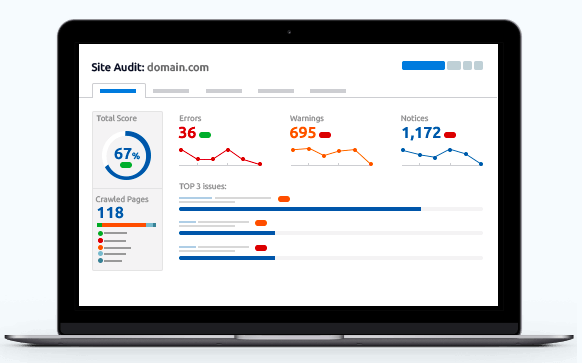

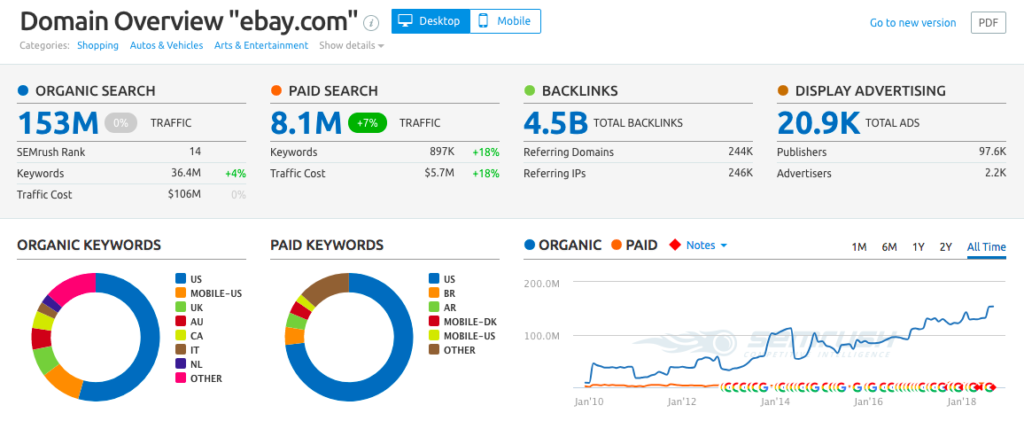
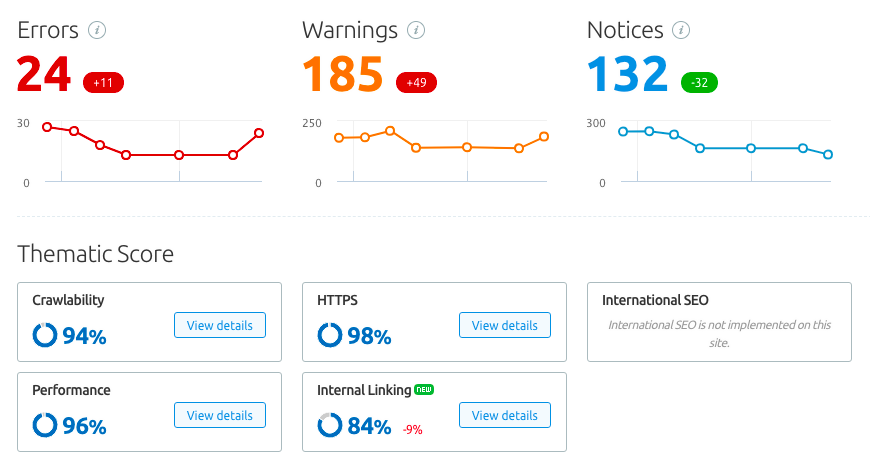

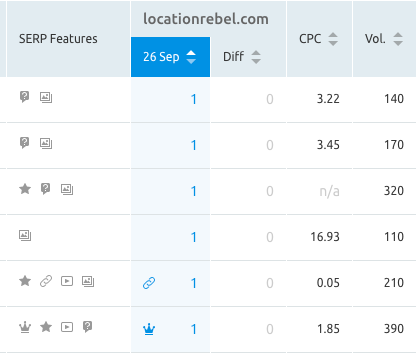
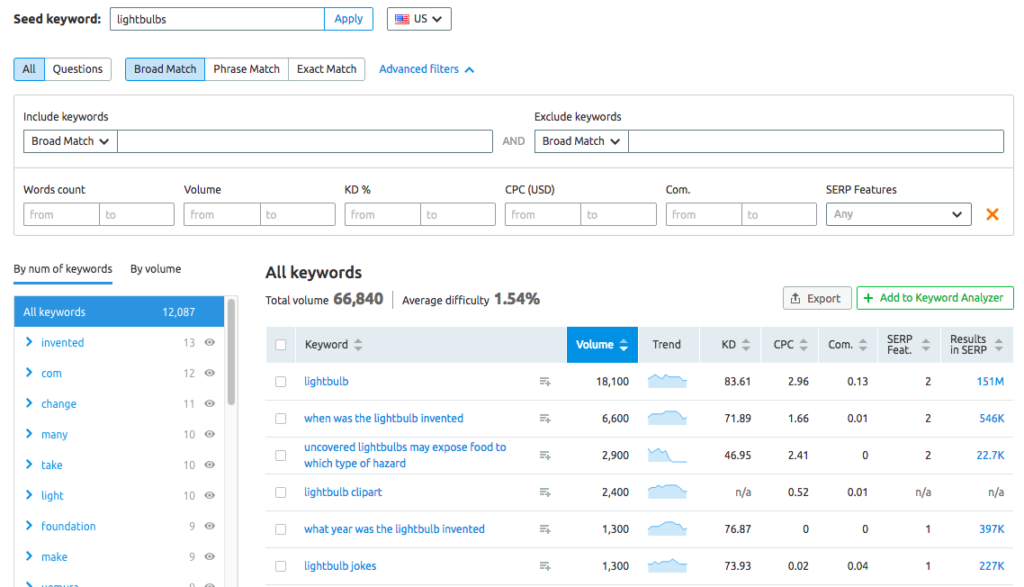
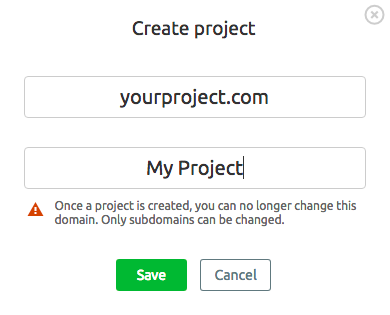
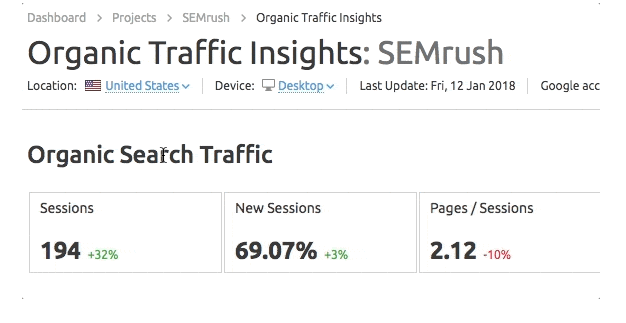
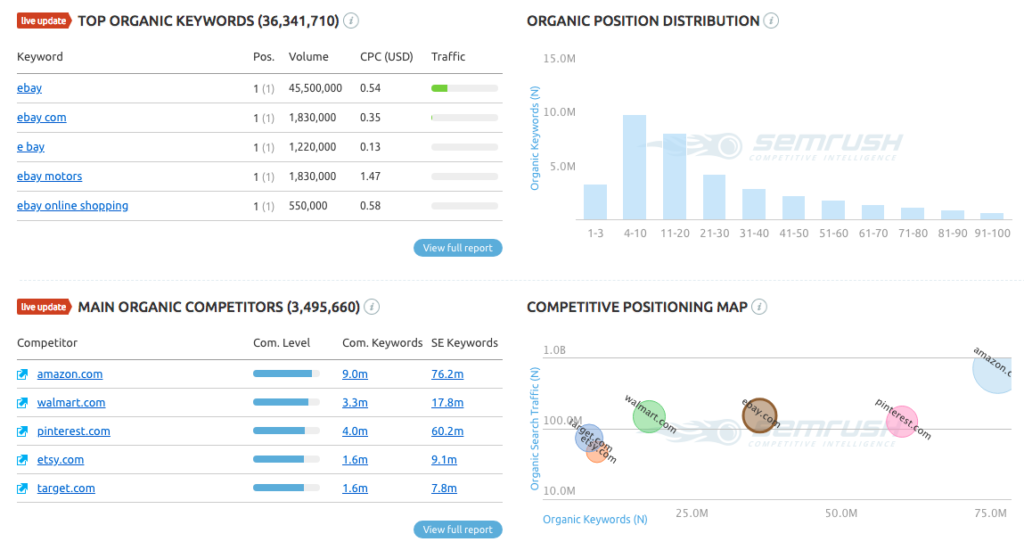
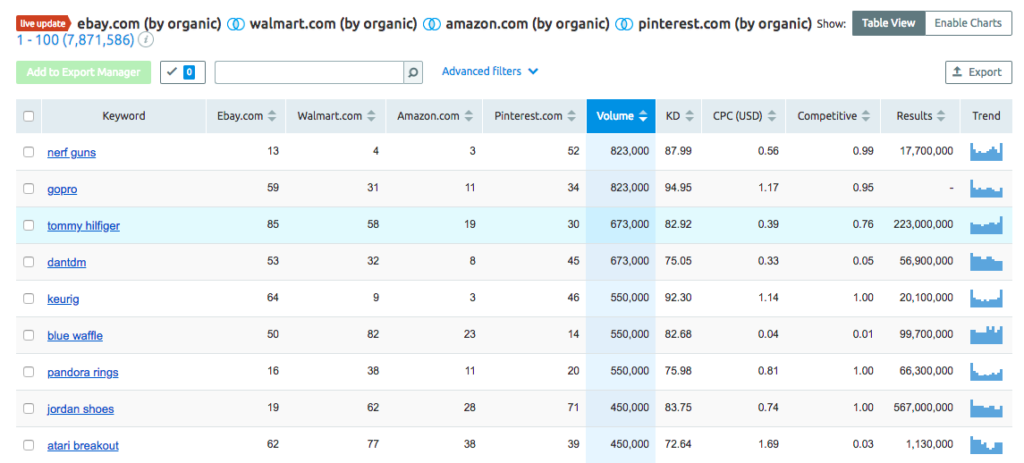
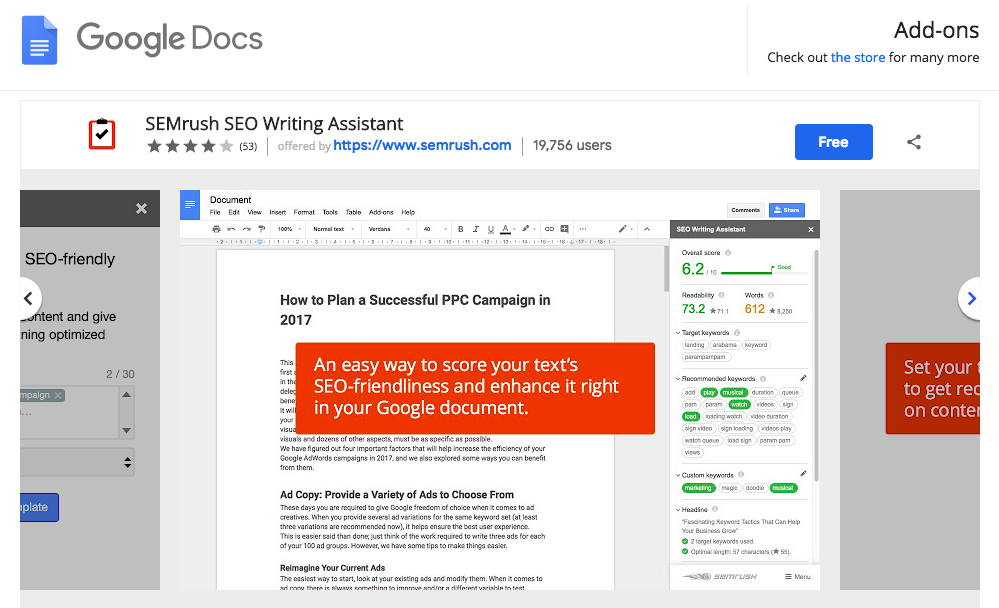



Great point about smarter than ever Sean. Folks used to write off valued tools, believing they could game Google. Those days are dead. Now we need tools to both focus us on the fundamentals and to add all critical details to appease the Google Gods. Definitely much more work these days which creates quality, trusted results. Rocking review.
I have been on the fence about which tool I want to use, and keeping coming back to SEM… I think this has swayed the decisions. Great post, thanks!
işitme cihazı, bursa işitme cihazı, bursa en ucuz işitme cihazı, bursa işitme cihazı tamiri, çocuklar için işitme cihazı, emeklilere işitme cihazı